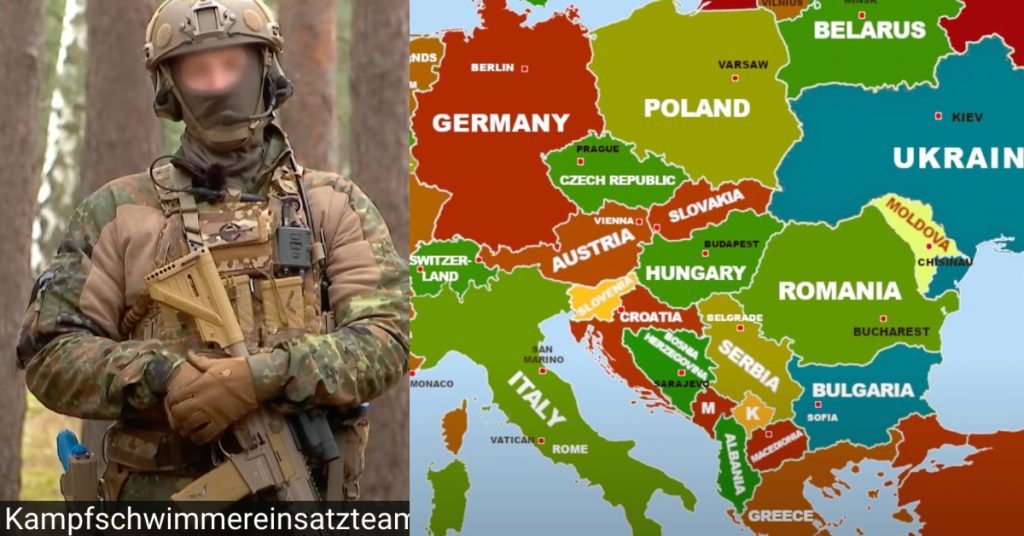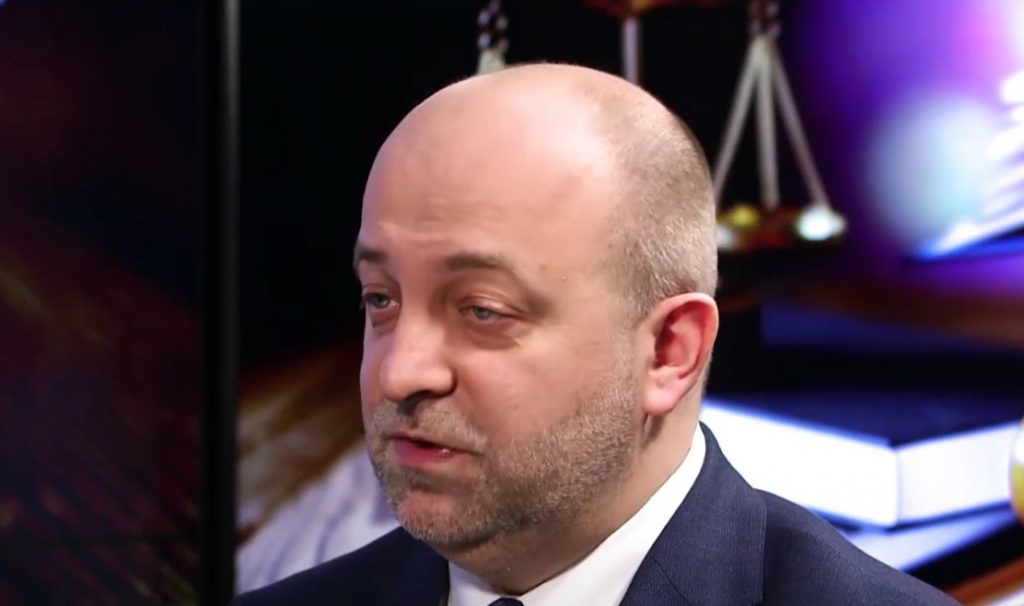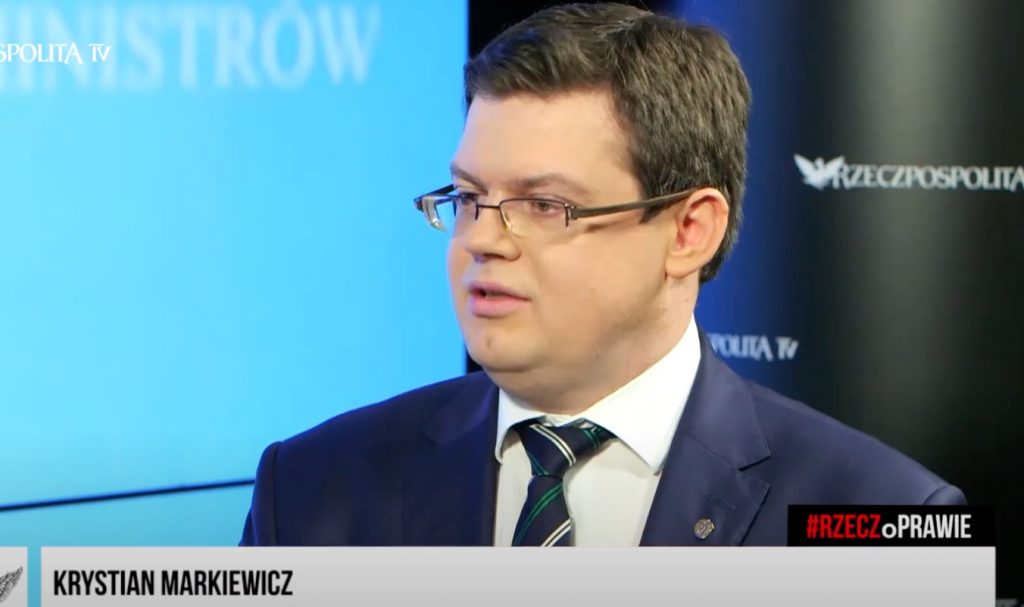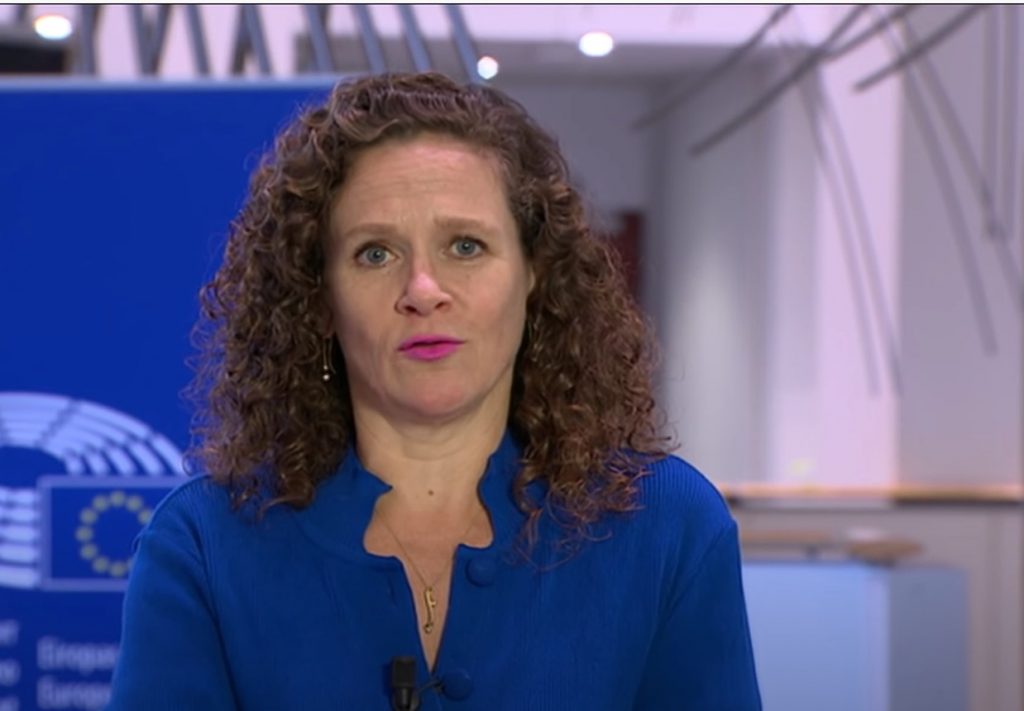Germany is accelerating its discussion on bringing back forced military conscription in order to be “war ready,” another sign of Germany’s return to militarism. As we read in El Pais:
Germany’s military rearmament, in addition to a representing a major financial outlay, also involves solving a pressing problem: the shortage of soldiers in the army. Defense Minister Boris Pistorius has been discussing possible models to revive compulsory military service for some time and now more and more political figures, both from the Social Democratic Party (SPD) and the conservative CDU/CSU, are preparing the ground for what already looks like a probable reintroduction of conscription.
Pistorius wants to reverse Germany’s decision to abandon compulsory military service in 2011, noting during a visit to the United States last week that “times have changed.” In his opinion, suspending it was “a mistake.” “I am convinced that Germany needs a form of military conscription,” he said during a speech at Johns Hopkins University. For the Social Democrat, it is a necessary step to “ensure military stability” at a time when the war in Ukraine threatens Europe’s security.
The German army, with a regular strength of 180,000 soldiers, has become too small. This is a reality that the government has been warning about for some time. The recent restructuring of the army to make it “war-ready” also involves increasing the number of troops. The government has calculated as a target a figure of at least 203,000 soldiers to ensure full defensive readiness. Added to this is the fact that 20,000 new soldiers a year are needed just to compensate for those who leave the service. Plans put in place in the past to reach a level of 203,000 personnel were unsuccessful. In addition, there are not enough reservists to meet requirements in the case of emergencies.
With these figures in hand, the Minister of Defense undertook a tour of various countries to analyze different forms of military service on the ground, such as for example that which exists in Sweden, where male and female citizens have to fill out a questionnaire at the age of 18, which includes information about their physical fitness and whether they would be willing to perform voluntary military service. The most suitable candidates are then contacted and asked to participate in a call-up, as only a certain percentage can be trained each year. However, if there are not enough volunteers, compulsory conscription can be introduced. This model is the one that is gathering strength in Germany.
Germany still has its geopolitical eyes on the Balkans and Poland, just as it did in the past:
It goes without saying that Europe is in a state of political crisis. With Britain just recently leaving the EU, and other countries in conflict with Brussels, the question being asked is, What will become of Europe if there is no respect for the EU? When Britain left the EU, talk about a pan-European military force immediately was amplified, since with an exiting UK, there was soon no longer going to be a British hinderance to the idea of a European army led by the EU’s most powerful economy, Germany. Now, at the center of the EU’s political turmoil is Poland. This article will discuss the nature of this clash between the EU and Poland and how with the breaking down of the status quo of the EU means a rising Germany which, as the world knows from two world wars, is not something to be enthusiastic about.
Poland vs. The EU
The tensions between the Polish government and the European Union go back to the elections of 2015, when the conservative Law and Justice party (PiS) won control over both the presidency and the parliament (Sejm), something that had never happened since the fall of communism. The presidential election took place in May and saw the victory of Andrzej Duda who was set to take office in August of 2015. The parliamentary election occurred in October and the new arrangement was to begin in November. The only branch of the government that was not under the PiS was the Constitutional Tribunal, which was now under the crosshairs of the competing parties: the PiS and the party that was ruling before the new president and parliament were to take their offices, the center-right Civic Platform. At the time, nine of the fifteen judges had been appointed by the PO while the remaining six were appointed by the PiS and its allies (the Kaczyński Cabinet) in 2006 and 2007. The judges appointed by the PiS had been in the Court for the longest time, and the terms of five of them were soon to end. These soon to be empty five seats would be at the center of the coming political battleground. Three of the outgoing judges had nine year terms that were about to expire on November 6th (just twelve days after the parliamentary elections), while the other two’s terms were set to expire in December.
Before the Law and Justice party could take their newly elected seats in parliament, the PO elected five judges to fill in the empty seats in the Constitutional Tribunal. But President Duda (who already took office in August) refused to let any of them take their oaths of office. The protestation of the PiS was that the Constitutional Tribunal was suppose to be the only branch of government not under the leverage of the presidency and the parliament, but that now it had become an extension of the PO. Jaroslaw Kaczynski, a leader of the Law-and-Justice party, protested that the “Constitutional Tribunal in today’s reality is an organ of the party (of Civic Platform) … This is not acceptable and is why it had to be changed.” The PiS wanted to shift the situation to where the Constitutional Tribunal would be under their own party.
Once the PiS completely entered the government, they nominated a different group of five judges in December of 2015. Battle commenced on whose judges were going to take seats. The Constitutional Tribunal accepted the first three judges appointed by PO and rejected the last two, and accepted the last two judges appointed by the PiS. This decision was argued against by the new PiS administration which then began to alter the regulations of the Court in order to guarantee that all five of the judges that it wanted got their seats. The new parliament also established term limits for the president and vice president of the Constitutional Tribunal, and also set up term limits for two sitting judges.
But the President of the Constitutional Tribunal declared that the newly appointed five judges should not hear any cases until the controversy was concluded. The PiS shut this down by passing a series of laws through the parliament and the Senate that led to legislation being passed on December 28th of 2015 which then forced the Constitutional Tribunal to permit the five judges to hear new cases.
Also in December of that same year, the Polish parliament passed a law imposing new rules on the Tribunal, such as increasing the number of judges required for the court to hear a case, and also making it so that the court needs a two-thirds supermajority vote for the court to decide on an issue. Some judges released a response stating that the act went against the protocol of a simple majority vote in Poland’s constitution. PiS replied that the act was effective immediately and that if the court wanted to overturn it they could do so through the new rule of a two-thirds supermajority.
In January of 2016, the court ruled that the appointing of the five new judges was legal. But, in March of that year the court shifted this position by stating that the new legislation was unconstitutional. The PiS disregarded this ruling by describing it as solely “advisory”. A crises sparked within Poland. Mass demonstrations were organized. Brussels described the actions of the PiS as a threat to the rule-of-law and the European Commission commenced an investigation into Poland under Article 7 of the Treaty on European Union.
In Poland, the appointing of judicial officials are largely done by an independent entity, the National Council of the Judiciary (KRS) which contains fifteen judges. Initially, these fifteen judges were appointed by various judicial assemblies, but in 2017 President Duda brought about legislation that gave the PiS dominated parliament the power to appoint the judicial members of the KRS. The new legislation also ceased the terms of the KRS’s sitting judges, enabling the PiS controlled parliament to replace its fifteen members with its own appointees.
The PiS dominated parliament, in turn, effectively took control over the appointment of judges, which was something that was responded to with stern criticism. As a result, the KRS was suspended from the European Network of Councils for the Judiciary (ENCJ). One of the fiercest points of contention between Poland and the EU took place in 2017 when the PiS government lowered the retirement age for judges and thus forcing judges to retire. The reasoning behind this, according to the PiS, was to purge out corruption and to modernize the court which it sees as a relic of the bygone communist regime. Poland and the EU are not entirely clashing over judicial matters. The judiciary is only a means to an end. Ideology is at the heart of this matter, as Poland’s government is trying to combat abortion and the influence of the agenda of Sodom, things that many within the EU want to advance. As the New York Times wrote:
“Poland has long maintained that Brussels is bent on restricting Polish sovereignty and pushing policies on L.G.B.T.Q. rights and other issues that run contrary to Polish traditions and the will of voters.”
In this tense political contention, Polish politicians are doing the right thing when they resist Sodom and abortion, and amidst all of this, the PiS’s grip over the court system and how it has put Poland at odds with the EU may spiral into a dangerous situation. Professor Daniel Kelemen stated that problems to the rule of law by EU members could “grow and metastasize like a cancer.”
Such a cancer would lead to the breakdown of the EU Bloc, and if such a situation were to transpire, it would give an incentive to Germany to become more nationalistic and militaristic. Since the EU was created to prevent another European war, and thus keep Germany in check through economic incentives, if the current state of the EU is no more, then for what purpose would it be for Germany to remain as a militarily sluggish country? Here lies the danger in what is happening in Poland. Regardless, this does not mean that Poland doesn’t have good arguments to support its position.
The PiS also argues, correctly, that the EU originally had no power over the judiciary of European states; this power did not come until a strategic ruling was passed in 2018 (as a response to Hungary and Poland), the same year that the PiS gave authority to the parliament to appoint judges. This legislation was put into action in July of 2018 and had forced 20 of the country’s 72 top court judges to leave the bench earlier than planned. As soon as the new measure was imposed, it was met with a strong response from the European Commission which ordered Poland to cease the legislation. The Polish government quickly acquiesced and President Andrzej Duda signed a law in December of 2018 reversing the order and allowing the judges who had been forced into early retirement to retake their seats. In 2019, the European Court of Justice declared that what the Polish government did was illegal.
“Poland has infringed EU law,” the court wrote in its decision, stating that the legislation enacted in 2019 “undermines the principle of the irremovability of judges, that principle being essential to their independence.” If the law was never stopped, it would have allowed the KRS to replace roughly 40 percent of the judges on Poland’s Supreme Court.
The political battle in Poland has led to a rift within the court itself, with standing judges expressing distrust for the judges appointed by the PiS and even refusing to recognize them as legitimate. To counter this, the PiS set up its own disciplinary chamber in 2017, but it has been criticized as a tool designed to “ensure that judges [are] subservient to the political will.” A group of Polish judges criticized the disciplinary chamber as repressive and pointed to instances of judges being prosecuted for engaging in activism against the PiS government. In other situations, judges were prosecuted for forwarding questions to the European Court of Justice, an action described as “judicial excess” by the prosecutors. The disciplinary chamber may punish judges with salary cuts or even explicit dismissal under what has been described as “muzzle” law. In late 2019, Poland’s parliament made more laws tightening control over the judiciary, according to Allyson K. Duncan and John Macy:
“In late 2019, the Polish Sejm approved yet another law aimed at cabining the structure and function of the judiciary. The new law, popularly referred to as a “muzzle” law, empowers a disciplinary chamber to bring proceedings against judges for questioning the ruling party’s platform. The law allows the Polish government to fire judges, or cut their salaries, for speaking out against legislation aimed at the judiciary, or for questioning the legitimacy of new judicial appointees. Although the law extends the government’s disciplinary powers, disciplinary proceedings against judges are nothing new in Poland. Since Poland’s disciplinary chamber was founded in 2017, over a thousand judges have been targeted. Put into context, the new law is merely the latest addition to a succession of judicial changes.”
Also in 2019 it was revealed by journalists that the Polish government commenced an online trolling operation to spread propaganda on the internet against particular judges in the Ministry of Justice. Professional trolls were actually hired to not only discredit judges but to harass them. In one such situation, a troll sent defamatory information about a judge to all of the judge’s colleagues and even to the judge’s home address.
An investigative report by the Onet news portal accused Deputy Justice Minister Lukasz Piebiak of being behind the harassment conspiracy. The report stated that Piebiak “arranged and controlled” an online campaign against Judge Krystian Markiewicz, the head of Iustitia, a judicial organization critical of the government’s policy towards the judicial branch of the government. Piebiak resigned from his position after the dissemination of the report.
The Onet report stated that Piebak both directed and funded an online propaganda campaign of a woman named Emilia who sent over two thousand letters and emails about Markiewicz to other judges and right-wing media outlets. The letters consisted of fabricated stories and gossip regarding Markiewics. Onet reported that Emilia obtaiend Markiewic’s home address from Piebak so she could send the judge one of the letters. Actions against individual judges have been done not only through propaganda, but by the PiS government’s disciplinary chamber. When the Court of Justice of the European Union ordered the Polish government to suspend its disciplinary chamber, the PiS state insisted on penalizing a Warsaw judge named Igor Tuleya.
The president of the Polish Supreme Court at the time, Aleksander Stepkowski, supported the proceedings against Tuleya, and affirmed that the case was a criminal matter, not a disciplinary one, and therefore not under the jurisdiction of the CJEU. International pressure ensued against Poland, and the PiS government acquiesced and dropped the proceedings.
With talk about the Polish government’s judicial policy still occurring, there has been much discussion over the years about the EU imposing Article 7 on Poland, which would strip the country of any voting rights within the EU Council. This has not been possible because the imposing of Article 7 would require the unanimous vote of all EU member states and Hungary has been resistant against it, with Prime Minister Viktor Orban affirming: “the Inquisition offensive against Poland can never succeed because Hungary will use all legal options in the EU to show solidarity with the Poles.”
POLAND AND THE BREAKDOWN OF THE EUROPEAN STATUS QUO
The clash between the EU and Poland is another sign of the gradual breakdown of the European status quo. The reason why we are calling this predicament the breakdown of the European status quo, as opposed to the breakdown of the EU, is because we do not know if the concept of a pan-European bloc is going to disappear, rather what we do know what is happening is the transformation of the bloc from its status quo condition into one wherein a strong German hegemony is much more profound and amplified. We have already seen a significant mark of this shift in Britain leaving the EU. We are seeing a campaign of pressure on Poland to make the country acquiesce to EU demands regarding its judiciary. The Polish government is not really acting submissive, but has been increasing its revolt against Brussels by going so far as to declare certain articles of the EU as being contrary to Poland’s constitution.
The European Parliament’s Committee on Civil Liberties, Justice, and Home Affairs (LIBE), as a response to Poland, continues to push for Article 7 to be imposed upon the country. But another method by which to pressure Poland has been pushed for, and that is the force of money. For example, Denmark called for the EU’s 2021-2027 budget to include a connection between EU funds and the standards for rule of law.
The proposal would, thus, cut down on funds to countries that do not meet the EU’s judiciary criteria. The LIBE also wants to utilize “budgetary tools” to financially sanction Poland. Pressure against Poland has also entered the extradition realm. In October of 2020, Germany refused to extradite a Polish citizen (wanted on the allegation of fraud) back to Poland, with the Karlsruhe Higher Regional Court asking “the Polish authorities for further information about the effects of the Polish judicial reform”.
In 2018, an Irish judge refused to extradite a suspected drug trafficker back to Poland, explaining that the rule of law in Poland had been “systematically damaged” by Law and Justice reforms. These refusals to extradite suspects are founded upon a 2018 ruling by the CJEU that concluded that “[a] judicial authority called upon to execute a European arrest warrant must refrain from giving effect to it if it considers that there is a real risk that the individual concerned would suffer a breach of his fundamental right to an independent tribunal.”
Today, the pressure on Poland has increased to another level of intensity. The President of the EU Commission, Ursula Von der Leyen recently described Poland’s actions as “a direct challenge to the unity of the European legal order”. In October of 2021, the European Court of Justice decreed that Poland will be getting fined one million euros a day until it disbands its disciplinary chamber.
The political conflict is at a stalemate, with both sides sticking to their position. There is little sign that Poland will submit. Poland’s Justice Minister Zbigniew Ziobro has refused the ordered fines: “Poland cannot and should not pay a single zloty,” he said, stressing that the Polish state should not “submit to lawlessness”.
The EU is withholding $41 billion for covid recovery from Poland to pressure the country to acquiesce. Lena Düpont, a member of the EU Parliament, described the fines and the withholding of funds as “a last resort that we have on hand before the big guns hit.” Dupont warned that the prospect of a Polexit is very real: “I think the danger is real – not because someone would actually ask for it, or because it is part of the Polish government’s communication strategy. But in the end, if we are not careful, it will come down to a factual one.”
In early October of 2021, Poland’s Constitutional Tribunal ruled that key articles in an EU treaty that state that the EU has power over national legislation in certain judicial areas, were not compatible with Polish law, a ruling that would prove to cause an extremely deep rift between Poland and the EU. As it was summed up by Politico, the “ruling by Poland’s Constitutional Tribunal concluded that the national constitution had primacy over EU law, effectively rejecting the legal bedrock upon which the European Union is based.”
With Poland rejecting EU authority in interfering in Polish legislation, and working to sever Brussel’s hand over its judiciary, the question then comes: will such pressure lead to a Polexit? Because if EU superintendence is ardently rejected, then its not far-fetched that EU membership could be one day rejected as well. “In practical terms, this ruling introduces aspects of a legal Polexit because it will deepen the problem of judicial co-operation between Polish and European courts, in particular the mutual recognition of judgements,” Patryk Wachowiec, research fellow at the Bingham Centre for the Rule of Law told the BBC.
The struggle between the PiS and the EU is essentially over whose judges will rule: those who are ideologically in league with the PiS or with the European Union. Hence why Prime Minister Morawiecki does not want rival judges to use the EU to bring into question the legitimacy of judges appointed by the PiS government. At the end of the day, this is a struggle for power (which is the entirety of the nature of politics). Donald Tusk, the former European Council president and now head of Poland’s biggest opposition group Civic Coalition, has exhorted Poles to express outrage against the PiS ruling that certain EU articles are incompatible with Polish law.
Tusk described it as a move by Deputy Prime Minister Jaroslaw Kaczynski to sever Poland away from the EU. “The operation planned by Jaroslaw Kaczynski to remove Poland from Europe has started full steam ahead. If we remain inactive, nothing will stop him,” Tusk said in a video posted on Twitter. Two of Kaczynski’s long-term confidants, Marek Suski and Ryszard Terlecki, have been stoking up anti-EU feelings. Suski enthusiastically talked about fighting the “Brussels occupier” and Terlecki stated that the UK had shown that “the dictatorship of the Brussels bureaucracy” could be defeated by leaving the Euro bloc.
Jacek Karnowski, editor-in-chief of the pro-government Sieci weekly, told the BBC that Polexit was “unimaginable and unrealistic”, but that its also possible that the EU is trying to push Poland out: “There is a possibility that Poland will be pushed out of the EU because we can already see that we are being pushed out.” Sophie in ‘t Veld, a Dutch politician, said that a Polexit is unavoidable: “A Polexit from the EU legal order seems to become unavoidable. It effectively makes cooperation impossible”.
Jeroen Lenaers, another Dutch politician and a member of the European Parliament, warned that Poland, because of its rejection of the EU court’s authority, has put itself on the road to a Polexit: “By declaring that the EU treaties are incompatible with Polish law, the illegitimate Constitutional Court has put the country on the road to polexit.” Jens Geier, A German politician and also a member of the European Parliament, affirmed that Poland has only two options: abide by EU demands or leave the EU: “If the legal community in the EU no longer exists, it will dissolve. For Poland there are now two options. Either the Polish constitution is brought into line with European law, or Poland has to leave the EU. “
European law expert Professor Franz C. Mayer, explained that declaring the European Court as incompatible with the Polish constitution,”can be interpreted as a declaration under Article 50 (exit from the EU). Either they leave or they change the Polish constitution”. Professor Laurent Pech described Poland’s actions against the EU court as “the polexit of the EU legal order (as well as the end of confidence in the European area of law, as far as Poland is concerned).”
Professor René Repasi called the ruling from Warsaw “a legal revolution. No national court, not even the German Federal Constitutional Court, has ever declared the law of the EU treaties to be ultra vires (outside of jurisdiction).” In the realm of legality, explained the professor, this is the most far-reaching step towards an exit from the EU by a national court that has ever occurred.
Jakub Jaraczewski, research coordinator at Democracy Reporting, sees a possibility not for an explicit Polexit, but a “’legal Polexit’, a removal of Poland from parts of the European Union’s legal sphere, making it a country that’s not fully participating in the European Union as it should as a full member state … And that may result in a very damaging situation both for the European Union, for Poland and the Polish people.”
THE BREAKDOWN OF THE EU AND THE RISE OF GERMANY
In the midst of this clash, lies the fact that it was Germany who helped provide for the precedent to further justify revolt against the European Union. In 2020, Germany’s highest court — the Federal Constitutional Court — rejected a policy established in 2015 by the European Central Bank (ECB) to help better the economies of poorer EU states. The strategy entails the ECB purchasing bonds from European banks to increase their funds and, in turn, lowering interest rates, making loans cheeper and thus increasing investment and economic activity (this strategy is known as quantitative easing). Germany’s highest court rejected this policy and, according to Politico, “found that the European Central Bank (ECB) overstepped its mandate by approving bond-buying programs and dismissed a ruling by the Court of Justice of the European Union (CJEU) that gave its blessing to the ECB.”
Franklin Dehousse, a law professor and former judge at the CJEU, stated that “Germany set a dangerous precedent by attacking the primacy of EU law”. Is Germany, then, working to tear down what is left of the cohesiveness of the EU? To reject the policy of the European Central Bank is to ignore the authority of the EU, and if countries are doing this then there is an indication that the binding power of the Euro bloc is losing its strength. But if Germany refusing to abide by the EU sets a precedent for other countries to rebel, then its quite clear that Germany is setting a standard for a rebellion being justified.
An interesting parallel to this was during the Catalonian revolt against Spain in 2017. Catalonia conducted an illegal referendum for seceding from Spain (with the majority of voters supporting separatism). The face of the separatist movement, Carles Puigdemont, was obviously wanted by Spanish law and fled to Brussels where he was provided refuge by the nationalist party, the New Flemish Alliance (which, not ironically, wants to separate Flanders from Belgium).
In early 2018, Puigdemont was arrested by German authorities while returning from Finland where he did a talk on Catalan independence. The German judge of the Schleswig Higher Regional Court discredited the allegation of rebellion and ordered the Spanish government not to charge Puigdemont with sedition, the very reason why the Spaniards wanted to arrest him in the first place. This action demonstrated just who is truly in charge over the EU: it is Germany.
What we see in the story of Puigdemont is a rebel who could have further fragmented Europe and sparked a ripple effect of revolution throughout the EU, being protected by Flemish nationalists (the New Flemish Alliance) in Brussels and the German court system. While Poland is thrashed for threatening the rule of law in Europe, Germany — by protecting a Catalan separatist and rejecting the policy of the European Central Bank — is doing much more damage strictly from its very powerful position. Germany stopped Spain from putting to trial a rebel who was threatening to fragment Spain and — ultimately — Europe. If any country has the power to fragment the EU, its Germany. The Spanish newspaper, El Mundo, stated that the action of the German court brought to question the unity of the EU:
“The judge at the Schleswig-Holstein Higher Regional Court, who decided to release Puigdemont subject to conditions and not to recognize the main allegation of rebellion, may not know exactly what he caused. It is not a question of seeking revenge and demanding imprisonment and a rebellion conviction. Rather, it is a question of whether we should believe that the European Union actually exists and that it is what it claims to be: an area formed by friendly countries that protect one another, among other things, through trust in the legal community. The European arrest warrant is also part of common law. The arrest warrant that has now been discredited by the German judge. The judge has also degraded the patient and thorough work of the Spanish judiciary. The damage is great. Not just for Spain, but for the European institutions, which are beset by a wave of Euroscepticism that will now be harder to stop.”
While Germany is controlling the EU, it is also helping to advance its transformation from the status quo to a European bloc ruled by an aggressive Germany. When Germany absorbed in hundreds of thousands of migrants in 2015, this accelerated nationalism in the country, and it was this migrant crisis that sparked the uprising of Brexit, and when the British severed themselves from the EU, it provided the perfect space for Germany to push forward the idea of a pan-European military force led by Germany.
Poland is rejecting EU law, and the highest German court is setting a precedent for Polish sentiments by resisting policy of the European Central Bank. If Poland deepens itself in this dual with the EU, it could come to the point of a Polexit, and if such a thing (or something like it, such as a Poland still remaining in the Bloc while rejecting its authority) were to happen, Germany will see it as another opportunity to further militarism. With the breaking down of the EU, comes a rising Germany, deeming the vague ‘Europe’ as pointless when it comes to military security, and looking at itself as the one needing to be assertive in military might. Just look at the type of rhetoric that came out of Europe after Brexit. For example, Euractiv reported not too long after Brexit in 2016:
“Stepping into the fray, France and Germany, the EU’s power couple, have prepared plans for a “more active” defence policy to restore confidence shaken by terror attacks, the migrant crisis and globalisation.
Meeting in Paris on the eve of the summit, German Chancellor Angela Merkel and French President François Hollande called for a “roadmap” to protect Europe’s borders and remain a “continent of hope”.
Brexit has emboldened many in Europe to move ahead with such plans, now that they no longer have to worry about Britain’s long-term opposition to any European Union army which would undermine NATO’s role.”
After a G7 summit in May of 2017, Merkel — with Brexit on her mind — stated: “The era in which we could fully rely on others is over to some extent … We Europeans truly have to take our fate into our own hands — naturally in friendship with the United States of America, in friendship with Great Britain … But we have to know that we Europeans must fight for our own future and destiny”.
Yes, she did say that Germany should maintain friendly relations with the US and the UK, but she spoke in the same sentence about Europe becoming independent, which means free from the power of the Anglo-sphere. Such was an example of the fragmentation of the status quo of Europe. In 2018 the rhetoric got stronger, with Merkel explicitly affirming that Europe could no longer rely on America for protection: “It is no longer such that the United States simply protects us, but Europe must take its destiny in its own hands, that’s the task of the future”.
The only way for Europe to become independent, security wise, is the creation of a major military machine, and since Germany is the economic and industrial powerhouse of the continent, then Germany would lead such a monster. Hence why Retired German Lieutenant General Rainer Glatz, and Martin Zapfe, a German researcher and an infantry captain in the German army reserve, wrote a whole report for the leading lobbyist organization that has the ears of the German parliament, the German Institute for International and Security Affairs, about how a pan-European military “will need continuous German leadership”.
Amidst the rise of this leviathan, if Poland continues on in its rebellion, how would it be treated by a revived German power? We can get an idea from Helmut Kohl, the architect (alongside François Mitterrand) of the European Union. On March 26 of 1990, Margaret Thatcher publicly stated in an interview with Der Spiegel that in a private conversation she had with Chancellor Kohl, he told her that he did not recognize the Oder-Neisse border with Poland which was established by the Allies after the Second World War. Kohl angrily denied saying this. But his denial is quite doubtful. For, when the Prime Minister of Poland, Tadeusz Mazowiecki, asked Kohl to vow that Germany will never try to retake Polish territory after reunification, Kohl refused.
Germany has a very long history of border disputes with Poland. During World War One, General Ludendorff wanted to remove millions of Poles from lands he believed belonged to Germany. In the words of historian Adam Tooze: “Ludendorff had finally confronted the question of what to do with the large Polish and Jewish population in the Polish territory he was determined to annex. His solution was taken from the pages of pan-German fantasy. As many as 2 million people would be uprooted from their homes”, and Ludendorff hoped they would move to America. (Tooze, The Deluge, ch. 6, p. 135).
This dream of purging out the Poles was incarnated during the Second World War when the Germans murdered millions of Polish people. The aspiration of exterminating the Poles was being pushed by the Germans years before Hitler took power. Alfred Rosenberg, the leading ideologue for the National Socialists, wrote in 1927 that the first thing that needed to be done for Germany was the destruction of Poland and the Germans needed to collaborate with Ukraine to complete such butchery: “Once we have understood that the elimination of the Polish State is the first demand of Germany, an alliance between Kiev and Berlin and the creation of a common border become a necessity of people and state for a future German policy.” (Piotrowski, Poland’s Holocaust, ch. 7, p. 197)
With such a history, it would not be surprising that German hatred towards the Poles will revive. We should keep in mind what German foreign policy has been focused on when it comes to Russia and Ukraine. There is a sort of dubious character in Germany’s policy in regards to the Russian-Ukrainian conflict. Germany backs Ukraine against Russia — just as it did during the Second World War —, but Germany also is collaborating with Russia to establish the Nord Stream 2 pipeline, which would allow Europe (especially Germany) to receive natural gas directly from Russia who would be able to transport the gas without having to go through Ukraine. Every time Russia transports natural gas through Ukraine, it has to pay Ukraine money and the Ukrainians have made billions because of this. As Andrian Prokip explains: “Since the 1960s, Ukraine has been a major corridor for the transit of Soviet—and, later, Russian—gas to Europe.”
Now, Russia has its means to bypass Ukraine in exporting gas into Europe through the Nord Stream 2 pipeline which it has co-created with Germany. Nord Stream 2 is completed, and with it Ukraine would no longer be a transit route for Russian gas, thus losing a point of leverage over Russia. As Prokip writes: “Ukraine’s role transiting gas to Europe will be vastly diminished and the country would stand to lose an important tool in its multidimensional conflict with Russia.”
A demonstration of this political leverage over Russia was seen in later 2019. Because Nord Stream 2 was not operational yet, Russia’s energy company, Gazprom (the biggest supplier of natural gas to Europe), was forced to sign a new transit contract with Ukraine (which won’t end until 2024) and to pay $2.9 billion in compensation to Ukraine following a decision by the Arbitration Institute of the Stockholm Chamber of Commerce. Ukraine’s prime minister, Oleksiy Honcharuk, called the decision a victory that “proves the soundness of our strategy”. The same effects that the Nord Stream 2 pipeline would have on Ukraine would be the same for Poland, since the pipeline bypasses the latter country. Another aspect of Germany’s foreign policy — and one that is much more destructive — the Steinmeier Formula — would allow Donbas (in eastern Ukraine) to become an autonomous state, essentially a satellite for Russia’s sphere of power. As a Stratfor report recently stated: “Moscow’s ultimate goal is to increase its influence over all of Ukraine.”
Just as Russia has its own interest of power in its advances into Ukraine, Germany just as well has an interest in expanding its hegemony. This is not far-fetched. Anytime there is discourse on German military revival, it is always met with those voices who claim that they cannot see how a revived Germany is possible, as if its modern history of conquest and genocide is non-existent. In the 1990s, when Germany backed Croatia and the Albanians against Yugoslavia, it was simply supporting territories and nations that it ruled over during the reign of the Third Reich and before that. In a 2012 interview with Davor Dzalto, Noam Chomsky explained Germany’s plan to expand her hegemony in the Balkans as a simple continuation of trying to control countries that she historically ruled:
“The proclaimed independence of Croatia was immediately backed by Germany, which also raised war memories — the Nazis and the Croatian fascists were very closely linked. And Germany was plainly just trying to expand its influence over the areas where it had traditionally dominated.” (Noam Chomsky interviewed by Davor Dzalto, January 6, 2012, Cambridge, MA, in Dzalto & Chomsky, Yugoslavia, p. 64).
In the 1990s the Germans trained and armed Albanian rebels in Kosovo who were proud of their families’ membership in the SS, to form the Kosovo Liberation Army (KLA), in order to destabilize and disintegrate Yugoslavia. The purpose of this policy was to expand German hegemony in the Balkans. In a 1998 European report, it says: “German civil and military intelligence services have been involved in training and equipping the rebels with the aim of cementing German influence in the Balkan area.”
If Germany’s support for the Albanians was about advancing German interests, then the same can be concluded regarding its policy in Ukraine. Why would Germany support the possible formation of a Russian proxy in Eastern Ukraine, if somehow it did not have any interests in such a thing? During the Second World War, the Germans made a pact with the Russians to split Poland in half, only to turn on the Russians eventually, for the only reason of advancing Germany. In the Second World War the Germans backed the Ukrainian nationalists against the Soviets and even expressed support for the formation of an independent Ukraine. But this was merely a facade to cover up Germany’s true motives of pure conquest. In the words of Erich Koch, who was the Reichskommissar over Ukraine: “There is no such thing as a free Ukraine. The aim of our work is to ensure that Ukrainians work for Germany.” (See Piotrowski, Poland’s Holocaust, ch. 7, p. 212). If Germany’s interest in the 1990s was expanding itself in Balkan territories it once ruled, then its interest are the same for Ukraine which is, to a great extent the result of German foreign policy.
The 1918 Brest-Litovsk meeting (in which the Bolsheviks ceded territories of the Russian Empire at the behest of the Germans), helped to give birth to modern Ukraine which both the Russians and the Germans would fight over. It was through the Brest-Litovsk treaty that Russia recognized the independence of Ukraine. In a way, independent Ukraine is a child of German foreign policy. Thus, Germany’s policy towards Ukraine should be seen in the same light as its policy towards the Balkans: trying to regain hegemony over a territory it once ruled, and truly Germany did, at one point, control Ukraine during the Second World War.
The Brest-Litovsk treaty got Russia to give up another territory, Poland, which Germany also ruled over during the Second World War. So, if Germany advanced itself in the Balkans in the 1990s to reimpose its hegemony in territories once ruled by Germany, and it seeks this same hegemony over Ukraine, then the same German interest of hegemony is lingering in the political atmosphere when it comes to Poland today. If Germany refused to recognize Poland’s border in the 1990s (the same decade it advanced itself in Kosovo), and (also in the 1990s) it refused to promise not to invade Poland, then what makes us think that Germany today does not hold these same feelings of expansionism?
If the EU continues to breakdown, the Germans will point the finger at Poland, and a new Europe — one that is not bent on solely economic but military power — will clash with the Poles. At the end of the day, the current dispute in the EU is one over power. Who is going to control the judiciary of European countries, the EU or the judges of their respective countries? Is Germany going to allow the European Central Bank to dictate financial policy, or is it going to be Germany itself? Does Spain have the power to try its own citizens for the crime of sedition, or is Germany going to determine if this happens or not? The very tense situation emanates from the egoist desire of power. With a fragmenting of the status quo of the EU, Germany then has the opportunity to flex its muscle and advance its own military might. After all, Germany within recent years has been stressing on becoming a power of foreign policy, and a Europe in political turmoil gives such a policy the green light.
As was written earlier, if the EU, as it currently is, is no more, then for what reason would there be a peaceful Germany uninterested in warlike pursuits? “If the Polish government can simply ignore the primacy of E.U. law,” asks professor Keleman, “then other governments could ignore whatever aspect of E.U. law they say is unacceptable to them”. And if such becomes the case, then the EU would be an empty shell, and Germany — the most powerful of the EU countries — would erect itself as the leader of Europe. Presently, when it comes to rule over the continent, we hear a lot about “Brussels” or just a general “Europe”, but with the EU as a shadow of its former self, a new focus would shift more so towards the economic monster within Europe, Germany, and a more Germanic-centric policy would arise.










